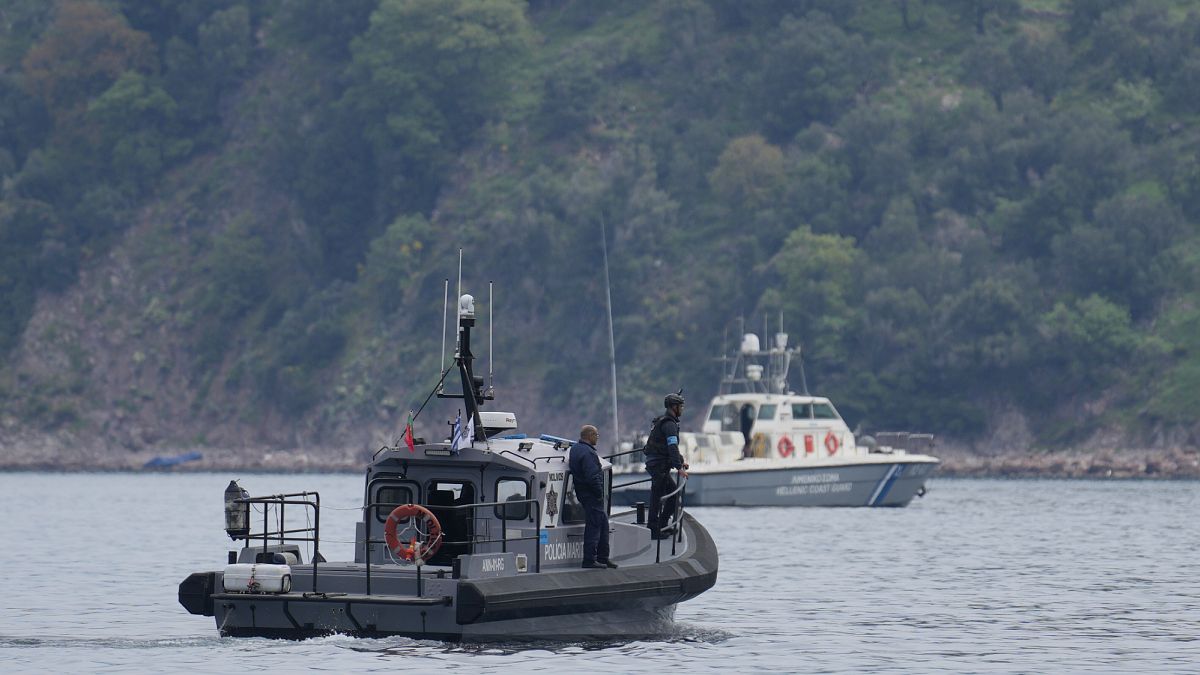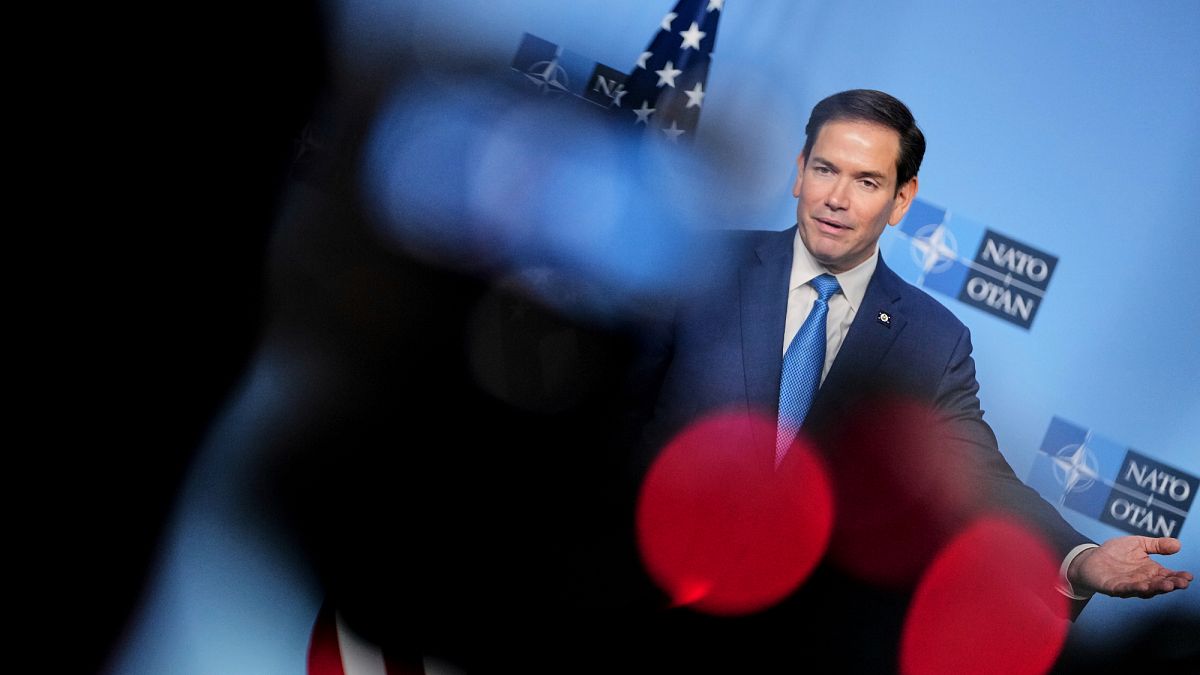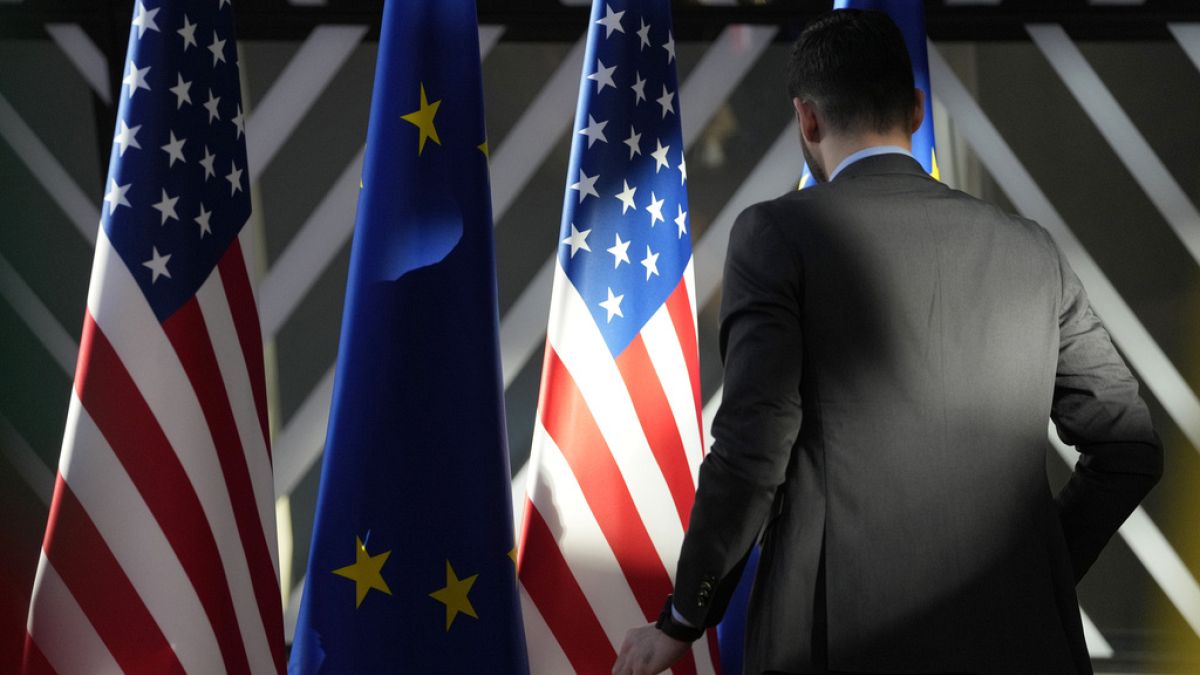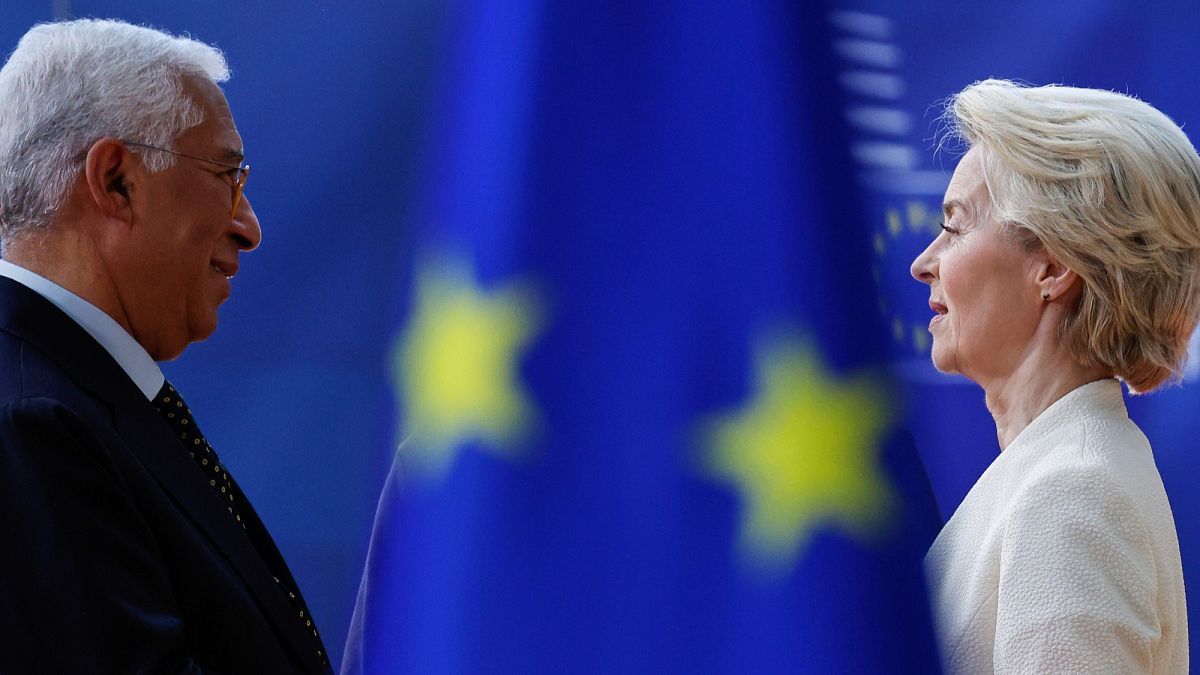The meeting of EU foreign affairs ministers comes a day after Russia launched another massive attack of drones and missiles against Ukraine.
Foreign affairs ministers of the European Union have gathered in Brussels to discuss the rapid succession of developments in Russia's invasion of Ukraine, including US President Joe Biden's decision to lift restrictions on long-range missiles, the deployment of an estimated 10,000 North Korean soldiers in the Kursk region and growing suspicions that Moscow has set up shop in China to assemble lethal drones.
The Monday meeting comes a few days after German Chancellor Olaf Scholz held a controversial phone call with Russian President Vladimir Putin, which was followed by a large-scale Russian attack against Ukraine's badly damaged power grid.
Looming over the gathering is the recent US presidential election and victory of Donald Trump, who has pledged to revise military and financial assistance to Ukraine. Trump's political comeback is stoking fears that Europe might soon be left alone in its support for the war-torn nation.
"We are facing a completely different landscape and Europeans have to be ready to act without waiting to react for the US decisions," Josep Borrell, the EU's foreign policy chief, said about the Republican's return to the White House.
"Russia continues attacking and we have to continue supporting Ukraine to defend."
Borrell welcomed President Biden's decision to drop his long-held veto and allow Kyiv to use US-supplied ATACMS missiles to hit Russian soil. The High Representative has repeatedly urged member states, in particular Germany, a leading military donor, to lift these restrictions and give Ukraine full room to manoeuvre. But Borrell's attempts to craft an EU-wide position have fallen flat, leaving each country to act unilaterally.
"You know my position," Borrell told reporters on Monday. "Ukraine should be able to use the arms we provide to them not only to stop the arrows but also to hit the arches. I continue believing this has to be done."
Annalena Baerbock, Germany's foreign affairs minister, who has often broken ranks with Chancellor Scholz to adopt a more hawkish position on Russia, said Biden's U-turn was "important" and cautioned it should not be seen as a "rethink" of the Western efforts but, instead, as an "intensification of what has already been delivered."
"The right to self-defence means that you don't have to wait until a rocket hits a children's hospital or a school or a completely normal apartment block," Baerbock said.
Her French counterpart, Jean-Noël Barrot, said his country was open to the idea of allowing Ukraine to strike military targets deep inside Russia. France and the United Kingdom, which have provided Kyiv with Storm Shadow, a type of long-range missile, have made their authorisation contingent upon America's approval.
China-made drones
Lithuania's Gabrielius Landsbergis struck a highly critical note and declared the current strategy on Ukraine had "failed" because the weapons supplied so far to Ukraine had only managed to contain Russian forces rather than push them back.
"Peace through de-escalation is a failing and failed strategy. We need a new one. We need a strategy that will come from strength," Landsbergis said on Monday morning.
"When I'm talking strength, I'm talking weapons, I'm talking about real removal of all restrictions (on weapons) and actually a winning strategy. From the winning strategy, we could come to a point when all the phone calls, everything would actually make sense."
Belgium's Hadja Lahbib, Estonia's Margus Tsahkna, Romania's Luminiţa-Teodora Odobescu and the Netherlands' Caspar Veldkamp all stressed the need for the EU to remain fully engaged with Ukraine and raised serious concerns about the role played in the war by other state actors, including Iran, Belarus, North Korea and China.
Diplomats in Brussels have received "convincing" evidence that Russia has built a factory to produce drones in China's Xinjiang region, something that would allow the Kremlin to evade the stringent Western sanctions. EU officials are still investigating the reports to determine the scope of Russia's weapons programme and China's level of participation.
"This is something that China should be realising is directly affecting European security," Veldkamp said, noting sanctions could be one of the options on the table if the suspicions of China-made drones are eventually confirmed.
Beijing has denied the reports, insisting it "strictly" controls military exports.
Besides the war in Ukraine, Monday's meeting of foreign affairs ministers will feature a discussion on Borrell's proposal to suspend political dialogue with Israel over the country's alleged violations of human rights and international law in Gaza, which has very low chances of succeeding due to unanimity rules, and the situation in Georgia after last month's parliamentary elections that were marred by irregularities.
The meeting likely represents Borrell's last intervention as High Representative before being replaced by Kaja Kallas in early December.

 4 months ago
39
4 months ago
39






 We deliver critical software at unparalleled value and speed to help your business thrive
We deliver critical software at unparalleled value and speed to help your business thrive






 English (US) ·
English (US) ·